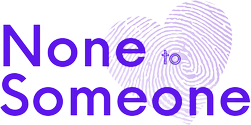In the fast-paced world of business, innovation and adaptability have become essential for success. As we look to the future, traditional management structures are being challenged by new concepts that promote decentralization, agility, and transparency. By combining the principles of blockchain technology and decentralized autonomous organizations (DAOs), a new paradigm of management is emerging. In this post, we will explore what this future may look like and the benefits these concepts bring.
The Rise of Decentralized Autonomous Organizations (DAOs)
Decentralized Autonomous Organizations, or DAOs, are at the forefront of organizational innovation. Built on blockchain technology, DAOs leverage the power of decentralized decision-making and smart contracts. Participants in a DAO have the ability to make collective decisions through voting or consensus mechanisms, eliminating the need for a central authority. This increased autonomy fosters a sense of ownership and encourages individuals to actively contribute to the organization’s success.
Agile Management and Flexibility
One of the key benefits of a DAO-inspired management model is its inherent agility and flexibility. Traditional organizations often struggle with rigid hierarchies and bureaucratic processes that hinder innovation. In contrast, DAOs empower individuals to take ownership of their responsibilities, promoting a culture of trust and open communication. This flexibility allows for quicker decision-making, and adaptability to market changes, and encourages experimentation and creativity.
Transparency and Trust
Blockchain technology, the underlying foundation of DAOs, brings transparency and trust to the forefront. The immutable and auditable nature of blockchain ensures that all transactions and decisions are recorded and visible to participants. This transparency promotes accountability and mitigates issues related to trust, enabling a more open and equitable work environment.
Empowerment and Participation
By embracing a DAO-based organizational structure, individuals become active participants in decision-making processes. This empowerment fosters a stronger sense of belonging and purpose, as everyone’s voice is heard and considered. Additionally, the removal of hierarchical barriers allows ideas to flow more freely, leading to greater innovation and creativity.
Challenges and Considerations
While the concept of DAOs and decentralized management holds tremendous promise, there are challenges to be addressed. Scalability, legal frameworks, and the need for effective decision-making processes require careful consideration. Striking a balance between decentralized decision-making and centralized coordination may be necessary for organizations that have complex functions and legal obligations.
The Future of Autonomous Organizations
As technology continues to evolve, the future of organizations appears to be headed towards a blend of traditional management structures and DAO-inspired principles. Hybrid models that leverage the benefits of decentralization while maintaining necessary coordination may emerge. These new organizational frameworks will create environments that encourage autonomy, innovation, and accountability, ultimately driving the success of businesses in the ever-changing landscape.
Conclusion
The future of management is being reshaped by the concepts of decentralized autonomous organizations and blockchain technology. Through these innovations, organizations can foster agility, transparency, and empowerment. While challenges remain, the potential benefits are immense. By embracing the principles of decentralization, the future workplace could become a hub of creativity and innovation, where individuals are actively engaged and contribute to collective success. As we navigate the path ahead, it is crucial to embrace the possibilities and adapt our management practices to harness the full potential of these exciting advancements.









